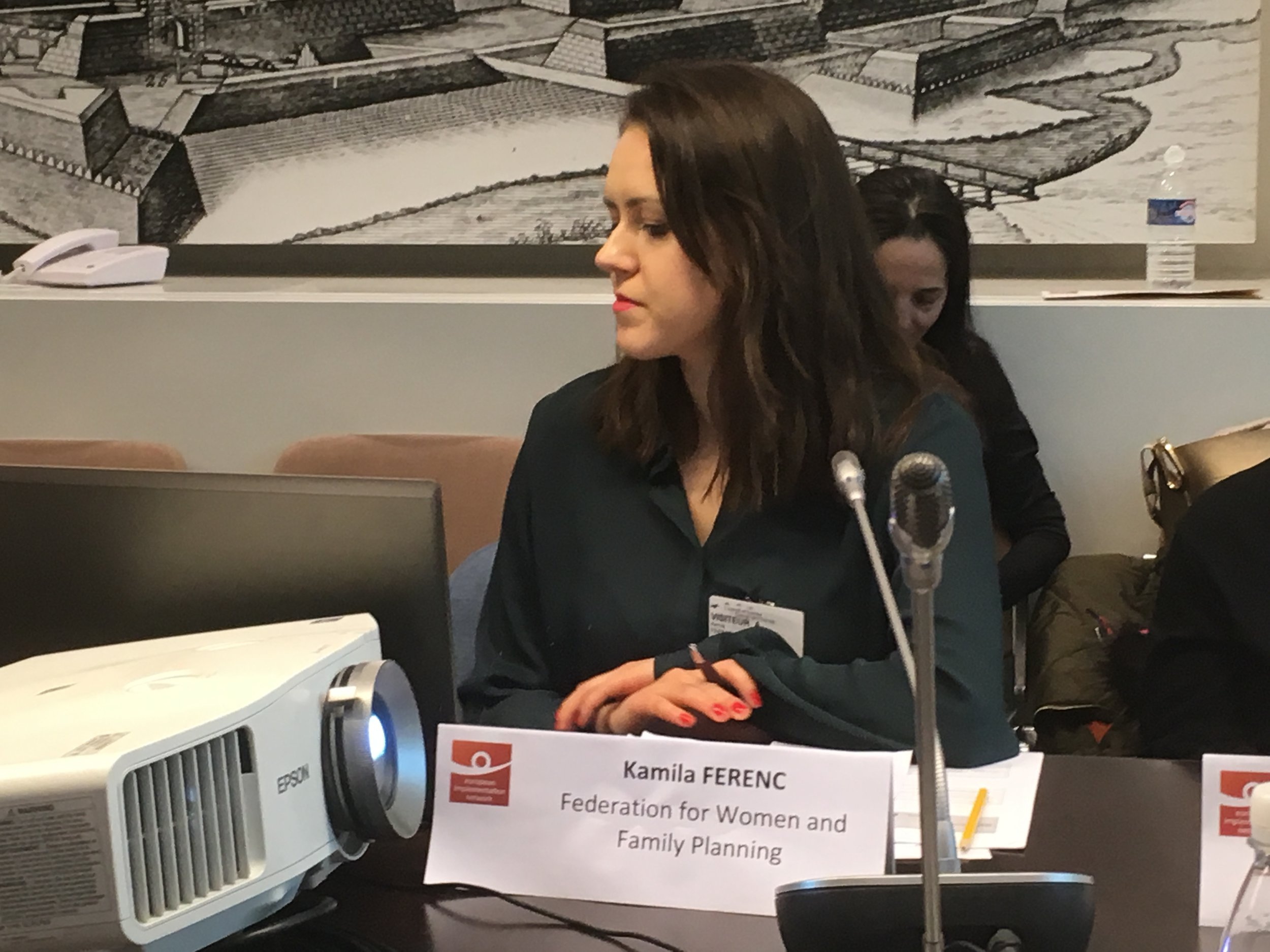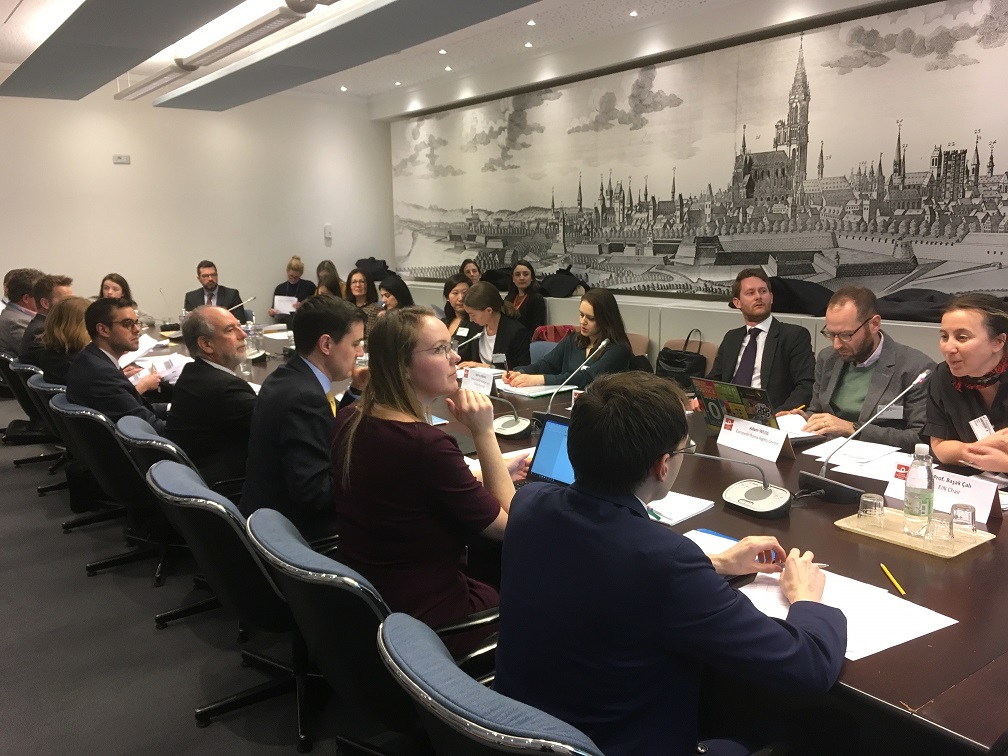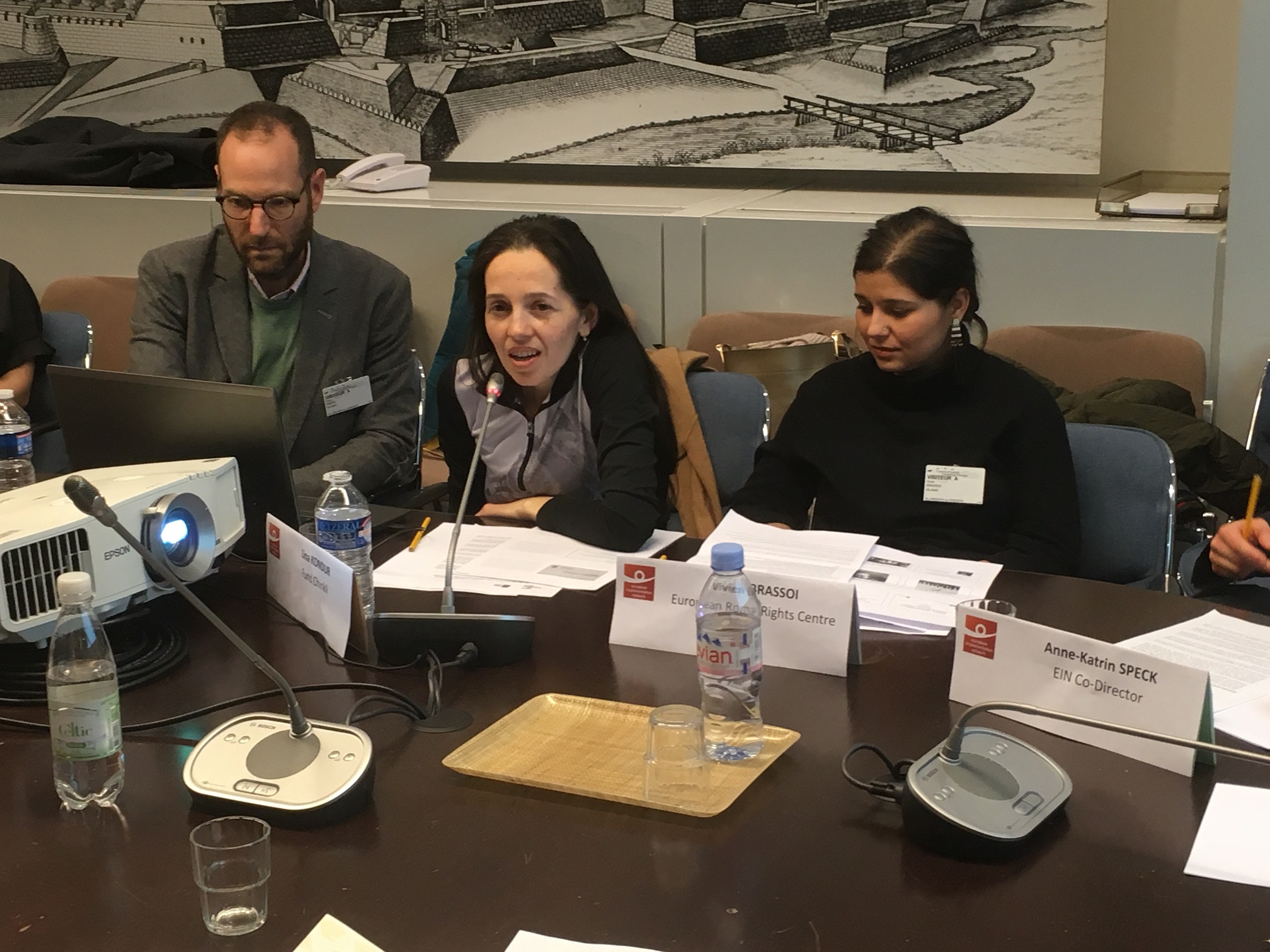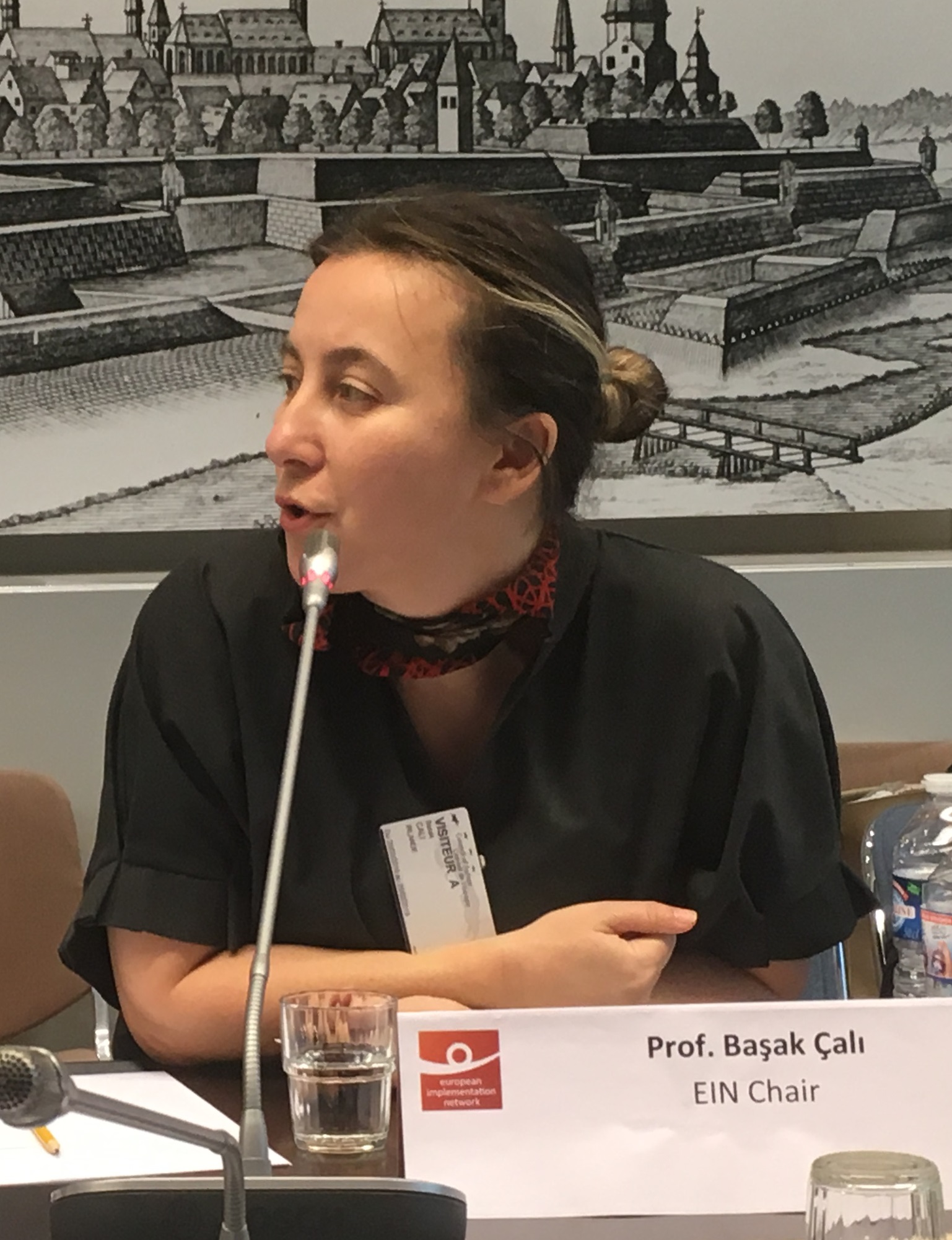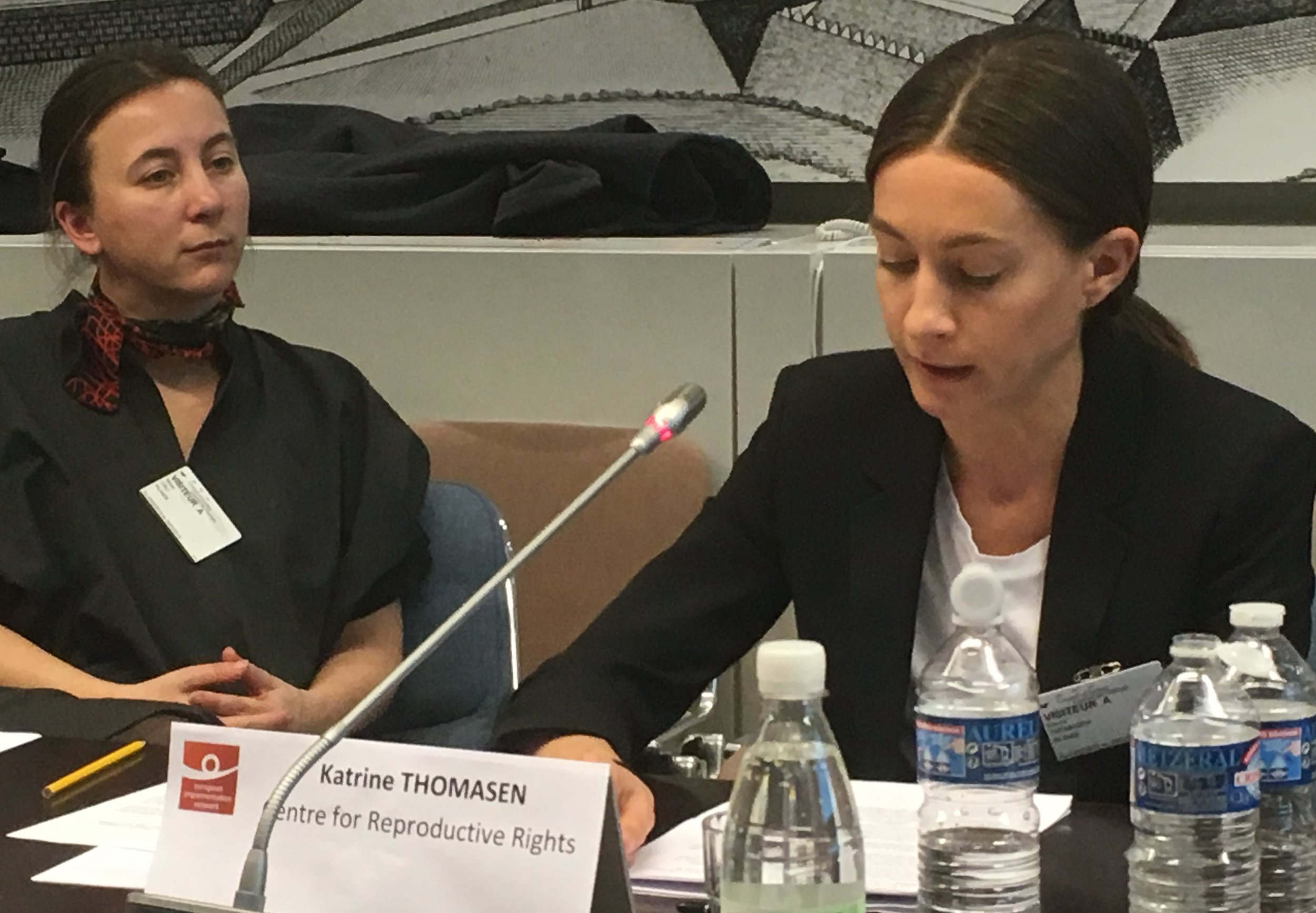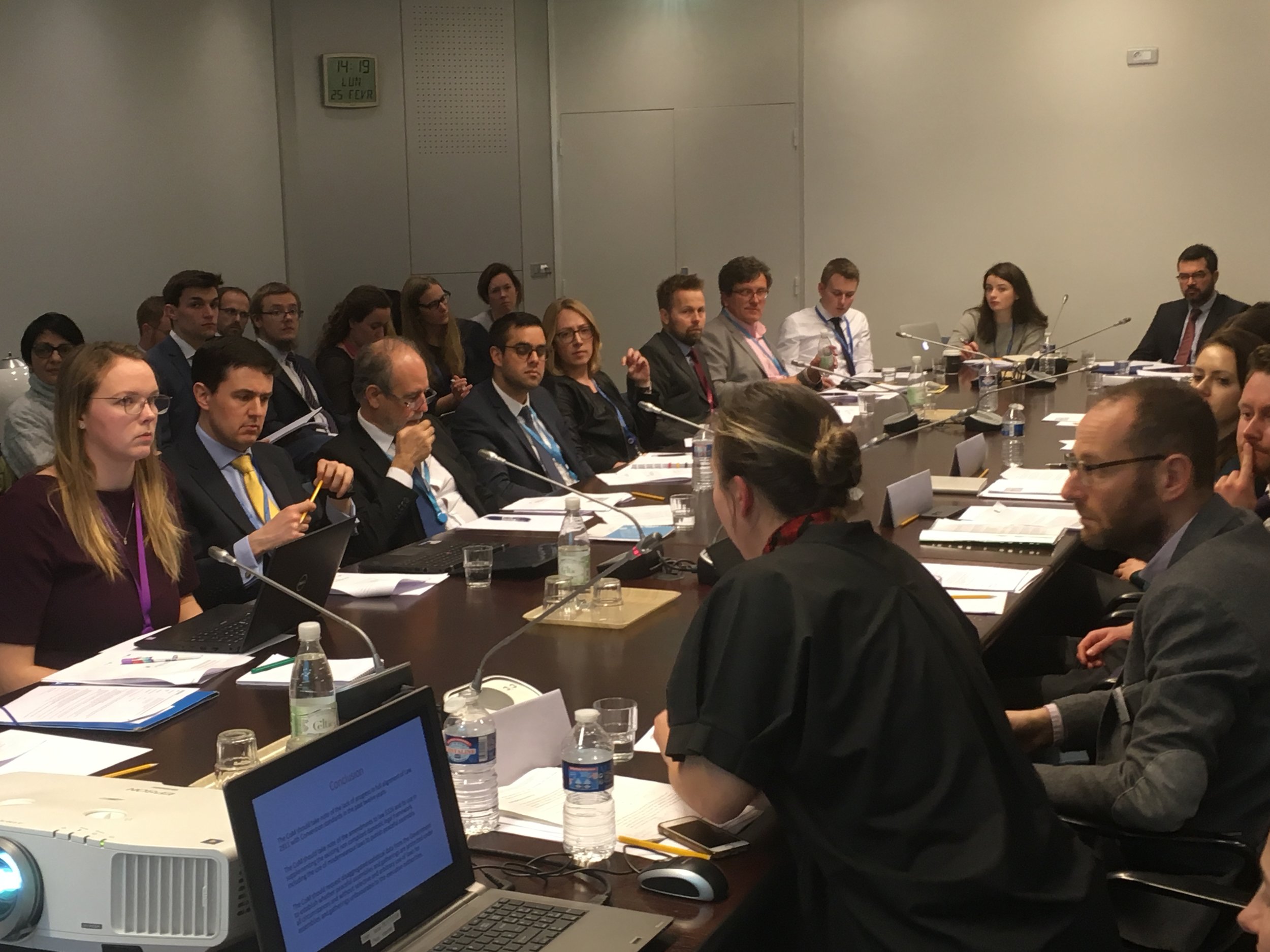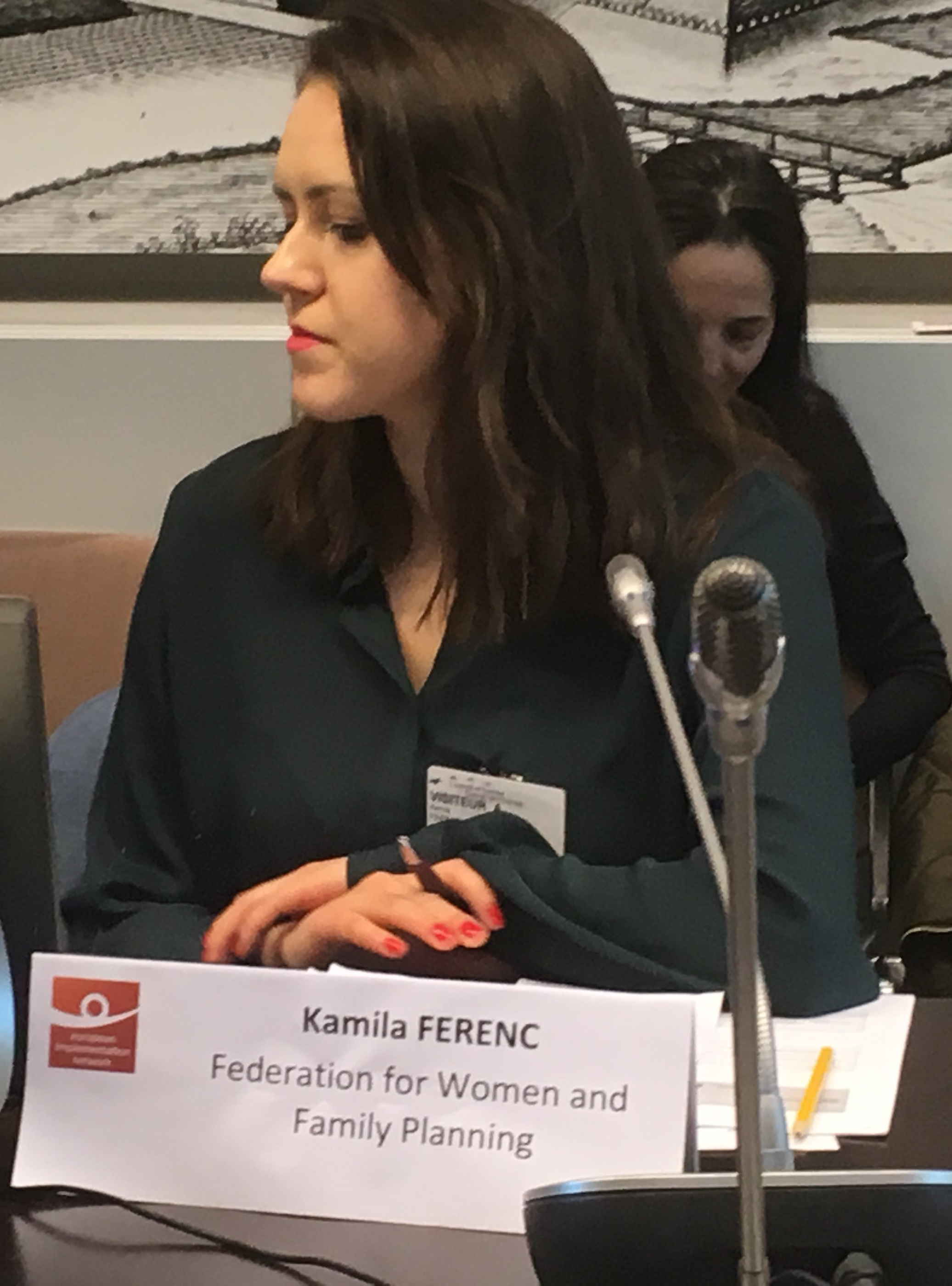EIN held its first 2019 advocacy briefing
/On 25th February 2019, EIN held its quarterly civil society briefing, ahead of the 1340th CM-DH meeting.
Presentations were given on the following cases:
1. Oya Ataman group v Turkey (Application Nr 74552/01)
2. Fedorchenko and Lozenko group v Ukraine (Application Nr 387/03)
3. P. and S. v Poland (Application No 57375/08)
In addition, EIN Co-Director George Stafford gave, on behalf of EIN and REDRESS, an overview of the fundamental problems regarding ineffective investigations in Article 2 and 3 cases, in preparation for the CM thematic debate of 12th March.
Over 30 participants attended the briefing, including participants from the Permanent Representations to the Council of Europe, the EU representation to the Council of Europe and other CoE staff members. The briefing was co-financed by the UK Permanent Representation to the Council of Europe and organised with the support of the Irish Permanent Representation.
1- Oya Ataman group v Turkey (Application Nr 74552/01)
These cases concern violations of the applicants’ right to freedom of peaceful assembly and/or their ill-treatment or the death of their relatives when excessive force was used to disperse peaceful demonstrations. Certain cases also concern failure to carry out an effective investigation into the applicants’ allegations of ill-treatment or lack of an effective remedy in this respect (violations of Articles 2, 3, 11 and 13 of the Convention). In its decision of March 2018, the Committee of Ministers recalled that the origin of the problems stemmed from the legislation under which any demonstration carried out without prior notice was considered to be unlawful, and asked Turkey to fully align Law No 2911 with the Court’s jurisprudence. The Turkish government provided information on the state of implementation on 20 December 2017 and on 4 January 2019.
Photo: EIN
An update on the group was delivered by Basak Cali, EIN Chair, Hertie School of Governance, Berlin; Center for Global Public Law, Koç University, Istanbul, on behalf of the Human Rights Joint Platform (IHOP). IHOP submitted a Rule 9.2 communication on the case on 4 February 2019.
First of all, she underlined that, since the last review of the state of implementation of the cases, Law N0 2911 had not been aligned with the Court’s jurisprudence. On the contrary, further restrictions on freedom of assembly were introduced through new legislative amendments, in particular to the Provincial Administration Law (No 5442).
Beyond these legislative developments, the practice shows the bans of assemblies of selected groups, the retaliatory use of tear gas, as well as civil and criminal law against peaceful protesters. Ms Cali gave examples related to the period after the end of the state of emergency in the country (18/7/2018): the Saturday mothers, continuous ban on gay pride and LGTBI events, despite existence of lawful requests to hold them, the case of Yüksel Resistance (see for further details the full text of the IHOP Rule 9.2 submission available below).
As far as the judicial practice is concerned, Ms Cali also pointed out that none of the judicial organs in Turkey was able to amend ordinary law through individual cases. “The root of the problem clearly lies in the lack of adequate legal framework, and arbitrary nature of the existing legal framework”, she said.
In conclusion, Ms Cali therefore called the Committee of Ministers to:
take note of the lack of progress in full alignment of Law 2911 with Convention standards in the past twelve years.
take note of the amendments to law 5442 and its use in supplementing the existing non compliant domestic legal framework, including the use of misdemeanour laws to punish peaceful assembly.
request disaggregated statistical data from the Government to establish whether peaceful assemblies and gatherings are protected under all circumstances and without selective and arbitrary use of laws for assemblies and gatherings unfavourable to the executive authorities.
The presentation of Ms Cali on this group of cases is available here. The latest communication from the Turkish government ( 8 January 2019) is here. You can also download the Rule 9.2. submission by IHOP ( 24th January 2019) and the government answer (1st February 2019) to this communication here.
2- Fedorchenko and Lozenko group v Ukraine (Application Nr 387/03)
These cases concern the failure to carry out effective investigations into violent acts allegedly carried out on racial/ethnic grounds (violation of the procedural limb of Articles 2 or 3) and to investigate a possible causal link between alleged racist attitudes and the attacks (violation of Article 14 taken in conjunction with Articles 2 or 3 in respect of its procedural limb). In Fedorchenko and Lozenko, the authorities failed to investigate the deaths of the applicants’ Romani-origin relatives caused by an arson attack on their house in October 2001.
The authorities submitted a first action plan on 17 September 2013 (see DH-DD (2013)1012) for Fedorchenko and Lozenko case. An updated action plan was published on 4th January 2019.
On 1st February, the European Roma Rights Centre and ICO Roma Fund Chiricli made a submission on this case, which they presented at the briefing.
Based on their fact-finding, both organisations argued that the Ukrainian government had not taken the necessary general measures to comply with the judgment. Throughout 2018, attacks occurred in Ukraine which targeted Romani communities in at least 5 cases. They appeared to be carried out by organised racist groups, and were not isolated. However, none of them were being treated as hate crimes. In other words, none of the mechanisms the Ukrainian Government described in its updated Action plan were being deployed in these cases, which bear all the hallmarks of racially-motivated violence.
In view of this situation, the representatives of ICO Roma Fund Chiricli and the European Roma Rights Centre therefore invited the CM to ask the Ukrainian authorities to:
amend Article 161 § 2 of the Criminal Code
regularly report to the Committee of Ministers on current hate crime cases (including the five presented at the briefing)
ensure effective training of law enforcement
set up an oversight structure for dealing with hate crimes
strengthen mechanisms for complaints against police
report to the Committee of Ministers on the budgets and financing for related aspects of Roma Integration Strategy 2020
The power point presentation of Mr Weiss, Ms Kondur and Ms Brassoi is available here. The January 2019 Action Plan by the Ukrainian Government is available here. The February 2019 Rule 9.2 submission by ERRC/ Chiricli made in February, and the answer by the Government, is available here.
3- P. and S. v Poland (Application No 57375/08)
The 2012 judgment in the case of P. and S. v. Poland (application no. 57375/08) is one of three important decisions of the European Court of Human Rights (ECtHR) concerning access to legal abortion in Poland. In all three cases, the ECtHR ruled that the rights of the applicants were violated because of the practical difficulties they experienced in exercising their right to legal abortion. To fully implement these judgments, the Court stated that the national authorities must take steps to guarantee not only theoretical but also practical access to abortion.
An update on the case was delivered by Katrine Thomasen, Senior Legal Adviser for Europe at the Centre for Reproductive Rights, and Kamila Ferenc, lawyer at the Federation for Women and Family Planning in Poland.
They underlined that the authorities’ communications dated January 2019 had not provided information on any measures towards establishing such a “viable system” for effective access to legal abortion care and thus comply with the Court’s judgment and the Committee of Ministers’ decision of September 2018 on the case. The authorities continued to claim that existing legal provisions and mechanisms are adequate. However, as Ms Thomasen highlighted, according to official statistics only between 0 and 3 legal abortions are performed each year in Poland on grounds of a pregnancy resulting from sexual assault. In addition, conscience-based refusals of abortion care remain widespread.
In light of this situation, Ms Thomasen and Ms Ferenc invited the Committee of Ministers to ask the Polish authorities to:
guarantee timely referral in situations of conscience-based refusals of legal abortion care
rigorously enforce legal provisions on abortion and refusals of care, including through sanctions and disciplinary measures
adopt urgent procedural mechanism: decision within max. 3 days; the right of judicial appeal; enforceable orders mandating the care to be provided
monitor and enforce National Health Fund contracts
You can find the memo of Ms Thomasen and Ms Ferenc here. Their power point presentation is here and their Rule 9.2 communication is there. The more recent communication from the Polish authorities on this case is here.
Photo credit: EIN









